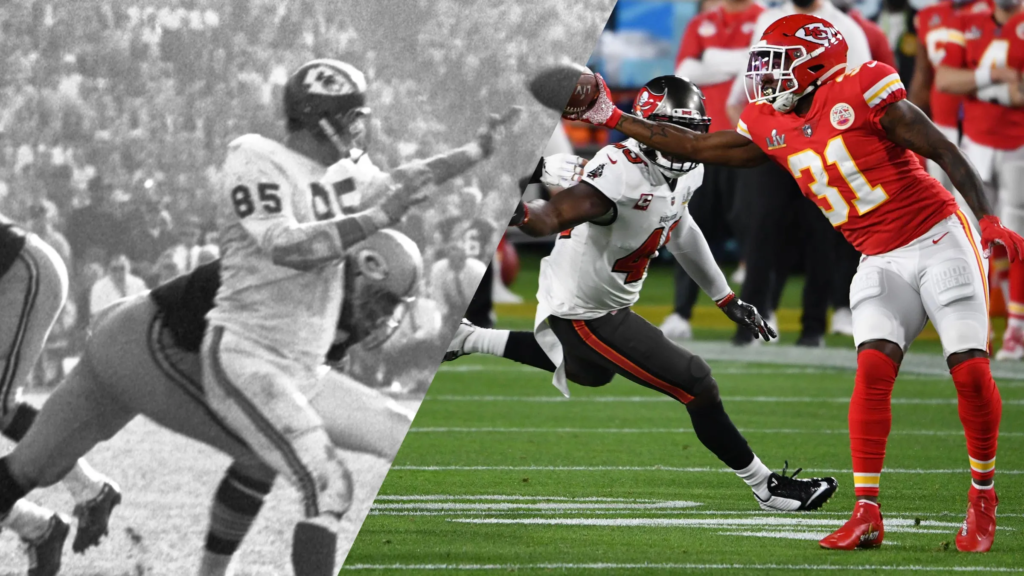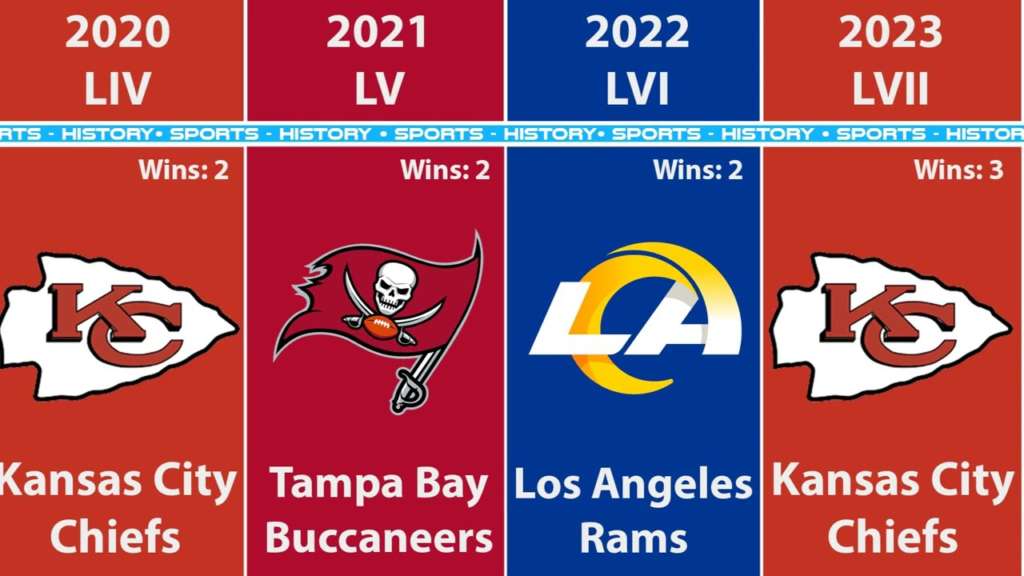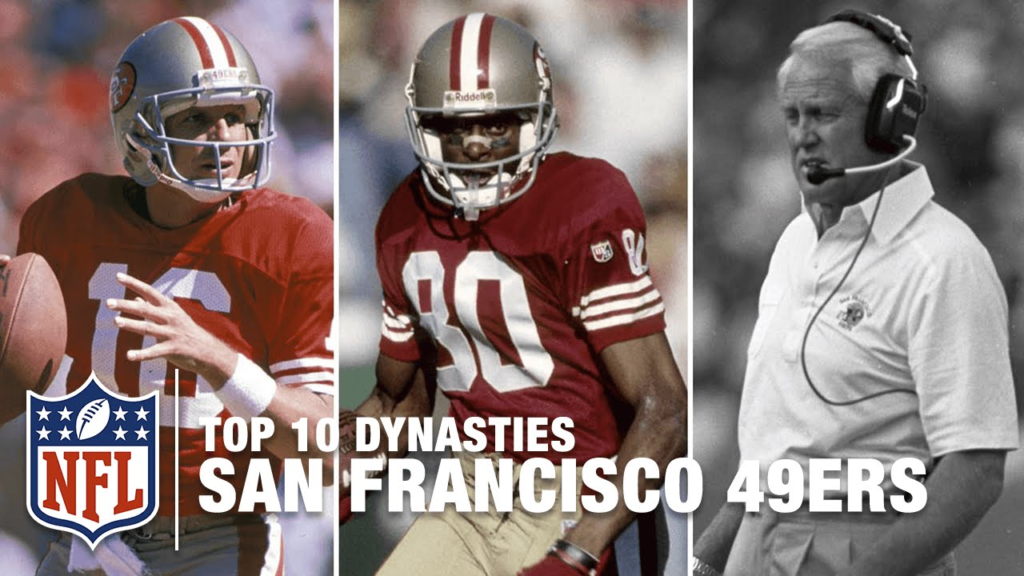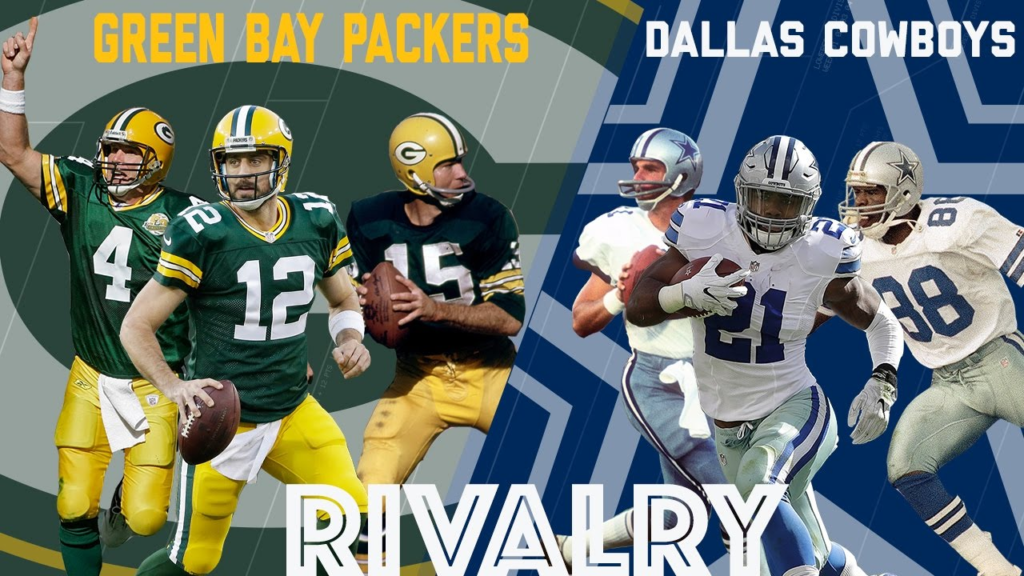The Super Bowl is the culmination of each National Football League (NFL) season, a global spectacle watched by millions. The winners of this iconic championship not only earn the coveted Vince Lombardi Trophy but also secure a place in the annals of football history. Each year, teams from the AFC (American Football Conference) and the NFC (National Football Conference) battle to claim this prestigious title. Over the decades, Super Bowl winners have been defined by their Super Bowl Winners standout performances, strategic excellence, and legendary plays. Let’s delve into the history and significance of Super Bowl champions and some of the most memorable moments in the game’s illustrious history.
The Origins of the Super Bowl

The Super Bowl began in 1967 as a showdown between the champions of the NFL and the American Football League (AFL), which merged with the NFL in 1970. The first two Super Bowls were won by the Green Bay Packers, establishing a dynasty led by the legendary coach Vince Lombardi. These victories helped legitimize the merger between the leagues, and the Super Bowl quickly became the ultimate showcase for professional football.
The Evolution of Super Bowl Champions

While Green Bay took the first two titles, the landscape of Super Bowl winners soon diversified. The 1970s saw the emergence of powerhouse teams such as the Miami Super Bowl Winners Dolphins and the Pittsburgh Steelers, who would go on to dominate the decade. The Dolphins made history in 1972 by becoming the only team to complete a perfect season, winning every game, including the Super Bowl. Led by coach Don Shula and quarterback Bob Griese, the Dolphins set a benchmark for excellence that still stands to this day.
The Steelers, however, were the defining team of the 1970s. Under head coach Chuck Noll and featuring a star-studded roster including quarterback Terry Bradshaw and defensive stalwarts like “Mean” Joe Greene, Pittsburgh won four Super Bowls in six years. Their “Steel Curtain” defense became legendary, and they set a standard for excellence and consistency that few teams have matched.
The Dynasty of the 1980s: San Francisco 49ers

The 1980s ushered in a new era of dominance with the rise of the San Francisco 49ers. Led by the brilliant head coach Bill Walsh and the great quarterback Joe Montana, the 49ers revolutionized offensive football with their innovative “West Coast” offense. Montana’s calm under pressure, combined with the versatile talents of wide receiver Jerry Rice and running back Roger Super Bowl Winners Craig, led the 49ers to four Super Bowl victories during the decade.
Montana’s precision and poise were most evident in Super Bowl XXIII when he engineered a last-minute, 92-yard drive to defeat the Cincinnati Bengals. His Super Bowl legacy cemented him as one of the greatest quarterbacks in NFL history, and the 49ers’ dominance was emblematic of the strategic evolution of football during the 1980s.
The 1990s: The Cowboys and Packers Resurge

As the 1990s rolled in, the NFL saw the resurgence of two historic franchises: the Dallas Cowboys and the Green Bay Packers. The Cowboys, led by quarterback Troy Aikman, running back Emmitt Smith, and wide receiver Michael Irvin, became the team of the decade. With head coach Jimmy Johnson, they won three Super Bowls in four years (1992, 1993, and 1995), marking a new dynasty in NFL history.
Green Bay also enjoyed a return to glory during this era. Behind quarterback Brett Favre and head coach Mike Holmgren, the Packers won Super Bowl XXXI, ending a 29-year championship drought for the franchise. Favre’s gunslinging style and charismatic leadership helped restore the Packers to their status as one of the NFL’s elite teams.
The Brady-Belichick Era: New England Patriots

The 2000s ushered in a new dynasty with the emergence of the Super Bowl Winners New England Patriots. The combination of head coach Bill Belichick and quarterback Tom Brady would lead the Patriots to unprecedented success, winning six Super Bowl titles between 2001 and 2018. Their first win, in Super Bowl XXXVI, came against the heavily favored St. Louis Rams and marked the beginning of one of the most successful runs in sports history.
Brady’s clutch performances, combined with Belichick’s defensive genius, made the Patriots a perennial contender. Their Super Bowl victories often came in dramatic fashion, including the famous comeback win against the Atlanta Falcons in Super Bowl LI, where they overcame a 28-3 deficit. The Patriots’ dominance during the 2000s and 2010s solidified Brady’s legacy as perhaps the greatest quarterback of all time and Belichick as one of the greatest coaches in the sport’s history.
Recent Super Bowl Champions
As the Patriots’ dominance waned, new teams have risen to the challenge in the most recent years. The Kansas City Chiefs, led by the dynamic quarterback Patrick Mahomes and head coach Andy Reid, won Super Bowl LIV in 2020, their first in 50 years. Mahomes, with his remarkable playmaking ability and strong arm, has become the face of the NFL’s new generation of quarterbacks.
In 2021, the Tampa Bay Buccaneers won Super Bowl LV, with Tom Brady continuing his remarkable career by securing his seventh Super Bowl ring in his first Super Bowl Winners season with Tampa Bay. This victory further cemented Brady’s status as the most successful quarterback in the history of the NFL.
Super Bowl LVI in 2022 saw the Los Angeles Rams claim victory against the Cincinnati Bengals, marking the Rams’ first Super Bowl win since 1999. Behind the arm of veteran quarterback Matthew Stafford and the brilliant coaching of Sean McVay, the Rams delivered a dominant performance that solidified their place among modern NFL champions.
Trends Among Super Bowl Winners
While each Super Bowl winner is unique, several commonalities unite these teams. Success in the Super Bowl often hinges on having a great quarterback, a well-rounded defense, and excellent coaching. Teams like the Patriots, 49ers, and Steelers were able to build dynasties by excelling in these areas, while teams like the Dolphins and Cowboys also succeeded due to their balance and depth.
Another key factor is the ability to perform under pressure. Whether it’s Montana’s game-winning drive in Super Bowl XXIII, Brady’s countless fourth-quarter comebacks, or Mahomes’ dazzling late-game heroics, Super Bowl champions are often defined by their ability to shine in the most critical moments.
The Legacy of Super Bowl Winners
Winning the Super Bowl elevates a team into an Super Bowl Winners exclusive club. Players and coaches who hoist the Lombardi Trophy achieve football immortality, with their names etched into the history books alongside the greats of the game. For fans, Super Bowl victories are cherished memories, often celebrated for generations.
The legacy of Super Bowl champions extends beyond the field, too. Super Bowl winners often inspire the next generation of players, while the games themselves are cultural landmarks, with iconic plays and moments that transcend sports.
As the NFL continues to grow and evolve, new teams and players will undoubtedly emerge to write their own chapters in Super Bowl history. But for now, the Super Bowl Winners champions of the past and present stand as the ultimate standard of football excellence, embodying the thrill, drama, and glory that make the Super Bowl the most celebrated event in American sports.
Conclusion
From the early dominance of the Packers and Steelers to the dynastic reigns of the 49ers, Cowboys, and Patriots, the history of Super Bowl winners is rich with stories of triumph, resilience, and greatness. Each championship victory adds a new layer to the ever-evolving saga of the NFL, and the pursuit of Super Bowl glory remains the ultimate goal for every team in the league.


